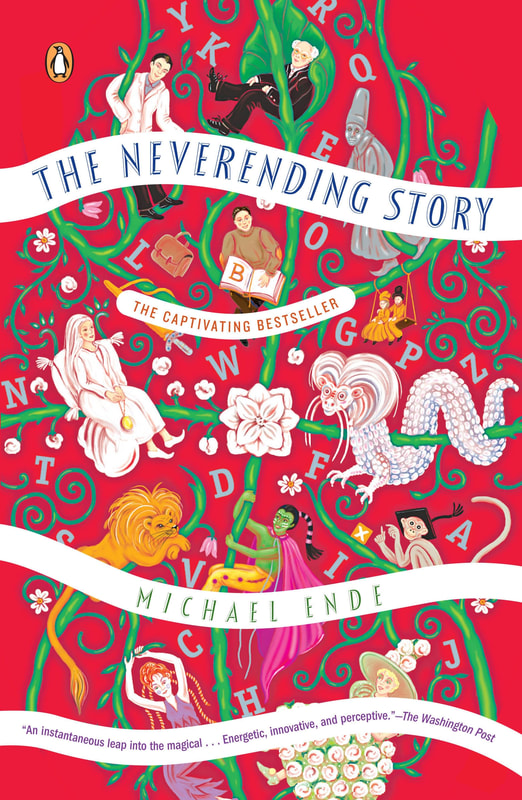Ende’s novel has a timeless quality that no doubt is one of the reasons it’s now seen as a classic. It recalls the best of children’s fantasy, like The Lion, the Witch, and the Wardrobe, The Phantom Tollbooth, and A Wizard of Earthsea. The genius of the idea is that the portal to a world of magic and adventure is a book. This enables Ende to provide a meta-commentary on fantasy as a whole, and show why we love being transported to imaginary worlds, as well as what happens when we go too far.
The first half is by and large the same as the film, although obviously in a novel there’s room for more detail and no budget constraints. This was a pleasure to read, and I loved joining Bastian and Atreyu on their journey. Ende has a brilliant imagination, and populates the world of Fantastica with many memorable characters.
The second half is unfortunately not quite as good. The main reason for this is that there’s no clear destination for the plot, unlike the first half, where Atreyu was pursuing a specific goal. This makes it feel somewhat disconnected and meandering. The scenes by and large work by themselves, but lacking a coherent through-line, it struggles to maintain the momentum it previously had. That said, it was still highly imaginative, and how Bastian’s character develops is done well and suits the book’s themes.
Overall I’d say that The Neverending Story is definitely worth reading, whether you’ve seen the film or not. It has something to say about the need for imagination and its limitations, while being a great story that readers of all ages can enjoy. As I said before, it would be interesting to see a film that includes the second half of the book, done in a way that Ende might have been happy with. Either way, though, The Neverending Story deserves its classic status, and is a testament to its author’s abilities.
Review by Charlie Alcock

 RSS Feed
RSS Feed
